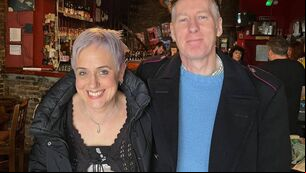Cork's Food Policy Council helping communities to grow their own food

Maria Young, Green Spaces for Health, and Sandrine Bertin, Food Policy and Development Officer, Cork City Council, at Rosehill Community Market Garden, Rosehill, Cork.

“Dr Colin Sage [co-founder of CFPC] approached Cork Healthy Cities. Food relates to health as well as other dimensions, and he recognised they were working at an interagency level and could they help to see if there was interest in a Food Policy Council in Cork,” explains Denise.







 App?
App?


